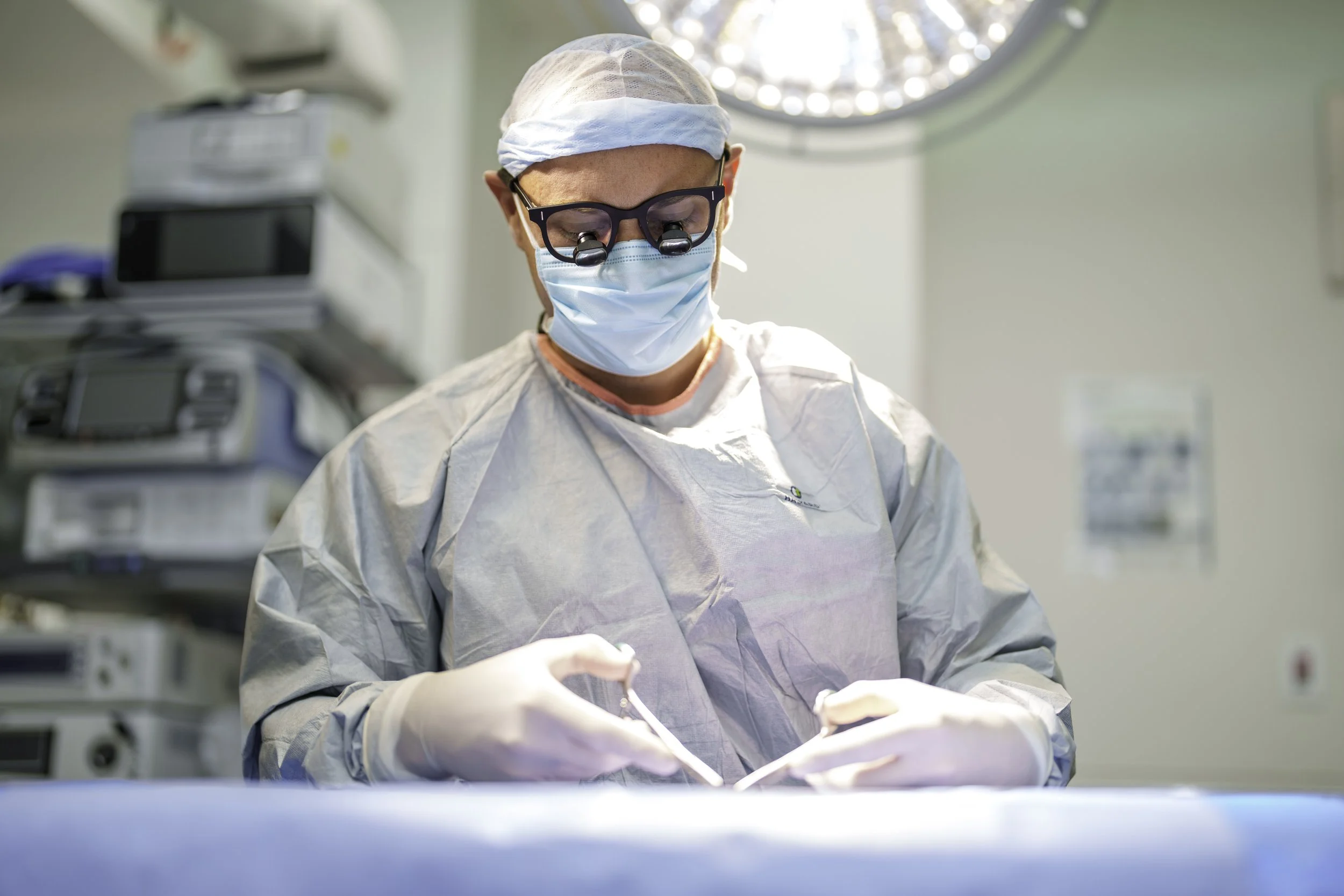Pre-operative information
Ben is focussed on working with you prior to surgery to ensure your operation has the best chance of success. There are a number of things you can do beforehand to get a positive outcome following surgery.
Your post-surgery recovery is dependent on your preparation before you undergo an operation.
Nutrition:
Aim to eat a healthy diet for at least 6 weeks prior to surgery.
A healthier body mass index (BMI) of less than 30 lowers the risk of complications. Even a 5% reduction in body weight will improve your recovery.
Nutritional supplements may be recommended by Ben in certain situations. These will be discussed during your consult.
Skin health: Ensure you have no open sores, scratches, wounds or bites near your surgical site, as these will increase your risk of infection post-operatively. Please contact our receptionist if you have any concerns.
Stop smoking: Please aim to stop smoking as early as possible before your operation (at least 24 hours) to reduce your risk of infection.
Mental health: if you feel you are suffering from depression or anxiety that is not already well managed, please seek assistance prior to your surgery.
Remain active: 20-30mins of physical activity everyday prior to surgery will improve your post-surgery success rate, as long as this activity doesn’t aggravate or cause significant pain.
General instructions before surgery
If you are having an outpatient (day) procedure, you will need to arrange for someone to take you home and stay with you for the first night. This is because you may still feel some effects of the anaesthetic and cannot drive for 24 hours.
If your surgery is scheduled for later in the day, please chat to your anaesthetist about consuming a light breakfast.
If you are on any medications to manage type-2 diabetes or chronic obesity such as Ozempic, Wegovy etc. (also known as GLP-1 receptor agonists or dual GLP-1/GIP receptor co-agonists), you will be asked to fast for a longer period of time prior to surgery. Please make sure to discuss this with your anaesthetist.
If you develop any health-related problems prior to your surgery, or if you need to cancel your surgery, please contact our receptionist, Millie, as early as possible (preferably greater than 1 week if possible)
Surgery payment is required before your procedure. You will receive an invoice 1-2 days after your surgery that you can use this to claim your private health insurance and/or Medicare rebate.
One week before surgery
Avoid non-prescription products especially those containing fish oil, as this can increase your bleeding risk.
If you are on a blood thinner, please confirm with Ben whether you need to cease this prior to surgery
24 hours before surgery
Do not smoke or drink alcohol for the 24 hours prior to surgery.
If your surgery is in the morning, please fast from midnight. This means you should not consume any food, drink any liquids (except plain water), chew gum or have a mint. You can drink plain water (less than 170mls per hour) up to 2 hours prior to admission time. For afternoon surgeries, please ensure your are ‘nil by mouth’ for 6 hours prior to your admission time.
You can shower before surgery.
Please do NOT shave your surgery site, as this can cause local skin irritation and increase the risk of infection
The day of surgery
Take your usual blood pressure and heart medications with a sip of water. Please consult Ben and/or your anaesthetist about any other prescription drugs you take.
Do not wear make-up on your face or body.
Remove all fingernail polish and/or acrylic or gel nails prior to surgery.
Wear your glasses instead of your contacts on the day or surgery.
All jewellery will need to be removed prior to surgery, so it’s best to leave it at home. This includes all body piercing jewellery and wedding rings.
If you wear dentures please wear them on the day of surgery and inform the anaesthetic staff
Wear comfortable clothing that is easy to remove.
Bring to the hospital the following:
Private health insurance and Medicare details
Regular medications
For patients staying overnight: A bag with nighttime attire, toiletries and a change of clothes

Upper Limb Orthopaedic Surgeon Melbourne
Utilising the latest techniques for upper limb surgery, Ben aims to get you back to your best as quickly as possible.


